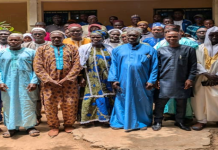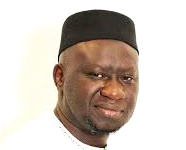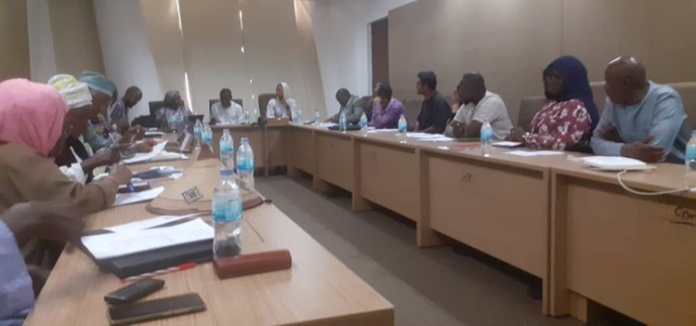By Momodou Jarju
Stakeholders from the Office of the Vice President and the National Social Protection Secretariat (NSPS) Tuesday proffered their inputs on the National Social Protection Bill 2023 as part of the consultation stage of the aforesaid bill.
The National Assembly Joint Committee of Health, Disaster, Humanitarian Relief and Refugees and Gender Children and Social Welfare engaged the stakeholders to proffer suggestions and or amendments to the bill, which was tabled by the vice president Muhammed Jallow on March 12 this year for its first reading.
The deputy permanent secretary at the Office of the Vice President Saikou Trawally said prior to the introduction of the social protection bill, they already have a policy in place that instituted structures to ensure all social protection matters or related issues are well coordinated and programs are effectively implemented.
“We established those structures both at the national and regional level. All through, there was no bill,” he said.
“This is a legal instrument that will set a pace that will reposition all social protection matters in terms of implementation, in terms of coordination, and supervision in the country.”
The national coordinator of the National Social Protection Secretariat (NSPS) Momodou K Dibba said the bill will establish an act of parliament, rather than having a policy statement, in a bid to legalise the institution of their secretariat.
Dibba pinpointed that social protection encompasses three parts: Social security, social insurance and social assistance. When the bill was being conceived, he said it was supposed to include all three parts, but because social security and social insurance already have laws, the social protection bill refers their matters to their legal instruments.
“Since there is already a law on social security and there is already a law on social insurance, which is the health insurance, you will read in part of the bill, it is referring you to the social security act and also the health insurance act, in order not to create confusion because there is already clear legislation on those two combined,” he said.
NSPS national coordinator clarified that their secretariat isn’t responsible for the direct implementation of the social assistance. They are supposed to do the coordination to avoid conflict of interest.
Commenting on Clause 21 of the bill, Mr Dibba proposed an amendment to the section to avoid confusion in the future in regards to retirement age.
“So just in case, maybe that changes in the future, it may have an impact on us. So maybe for the purpose of legislation, we may want to add maybe a sentence or phrase there to say for any other time that the retirement age changes,” he explained.
He added that the bill indicates that anyone 60 and above years should be entitled to social assistance.
“So there are caveats in terms of selection criteria when it comes to when it’s fully rolled out,” he added.
Clause 24 under Social Assistance Program, Dibba said the National Social Protection Policy has five priority areas which are captured in the bill. He said priority three is important because it’s saying instead of giving social assistance directly to people, their chances of employment can be improved, which is directly related to skills development.
“There are people who are economically active. So usually priority three is for them: Somebody who is young, who can work. So it is better you equip the person with skills to be able to employ. But if somebody is 70 years old, he’s disabled, he’s lying on his bed, you don’t expect him to be in the job market,” he said.
Dibba proposed the formation of a mechanism to accommodate complaints from people rather than taking the court route which could be a long process.
“So my recommendation then is to call it a grievance mechanism. So what we intend to have is, if we check almost all projects now, we try to have grievance mechanisms in place and they try to get toll free numbers. So before you realise, we will probably go out of toll free numbers, because everybody wants a toll free number.
“Since the agency will not implement a social protection programme directly, the idea is to have a unified call centre where all grievances on social protection related matters can be lodged and then the secretariat or the agency will now take it up with the implementing partners,” he said.




















